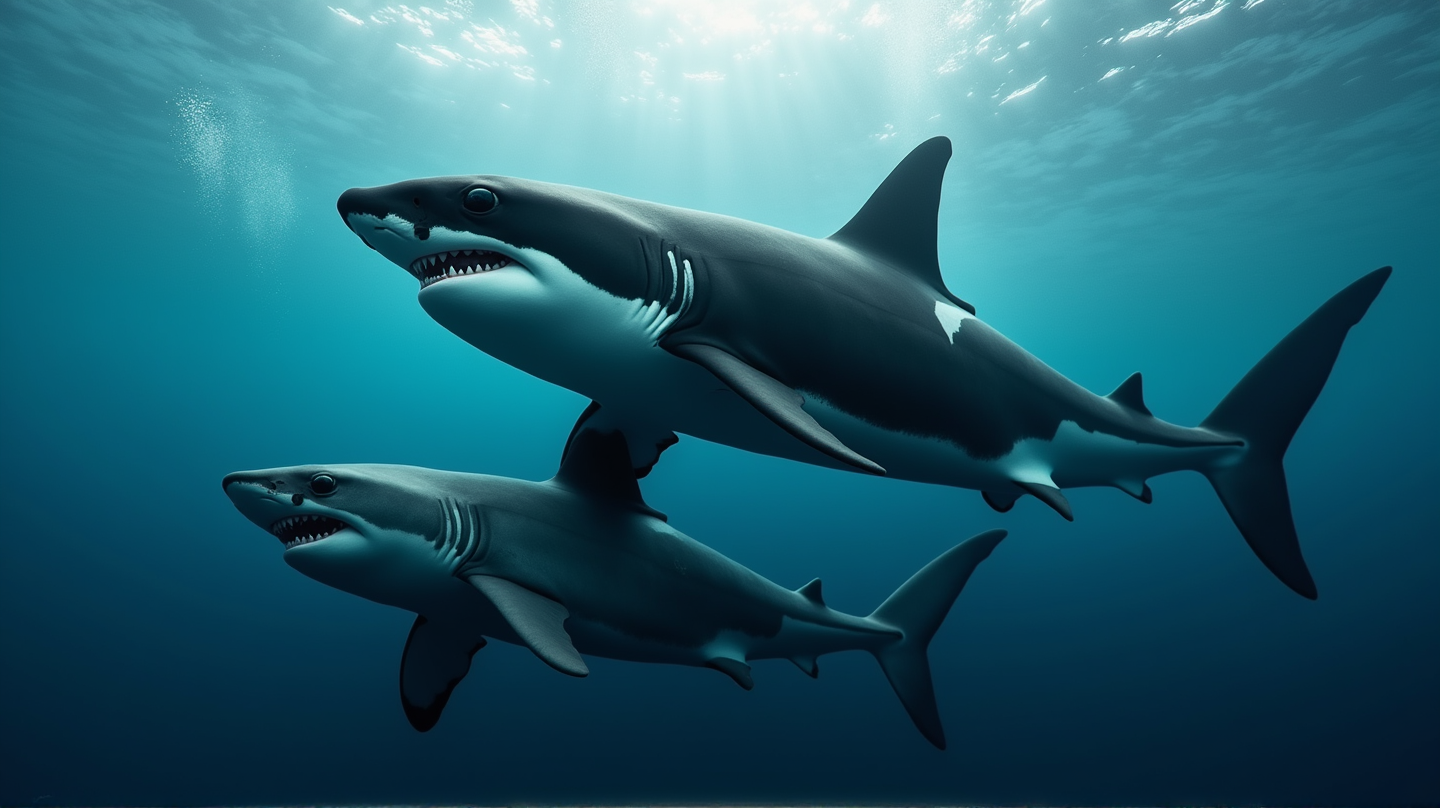In a stunning twist of nature’s hierarchy, orcas in the Gulf of California have been captured utilizing a remarkable tactic against young great white sharks. Known for their intelligence and strategic prowess, these marine predators demonstrate an evolved skillset that positions them as formidable hunters even against fellow apex predators.
The Art of the Hunt
Orcas have been observed using a sophisticated technique: by flipping juvenile sharks upside-down, they induce tonic immobility—a state that leaves the shark defenseless. This approach allows the orcas to extract the nutrient-dense liver before moving on. As stated in Frontiers, this hunting method underscores the orcas’ supreme adaptability and cognitive finesse.
The Science Behind the Display
According to marine biologist Erick Higuera Rivas, this behavior illustrates orcas’ advanced intelligence and showcases how hunting techniques are passed down through generations. The precise coordination and understanding required to subdue such formidable prey highlight the orcas’ role as highly skilled marine strategists.
Predators Turning Prey
August sightings revealed Moctezuma’s pod in action, with hunts resulting in precise liver extractions from juvenile great whites. These smaller, less experienced sharks are now within the sights of the orcas, particularly in altered nursery areas due to climate shifts. This shift raises questions about the dynamics in marine predator-prey relationships.
Implications of a Changing Ocean
The changing patterns of white shark nurseries, potentially influenced by climate events like El Niño, offer Moctezuma’s pod advantageous hunting grounds. The increased presence of juvenile sharks in these waters suggests a seasonal opportunity, hinting at broader ecological impacts and shifts.
Expanding Our Understanding
While these observations are groundbreaking, they only scratch the surface. Scientists like Dr Francesca Pancaldi aim to conduct detailed surveys to understand the full scope of orca diets in the region. By documenting these hunting behaviors, researchers hope to identify critical habitats and inform conservation efforts, mitigating human impact.
A Glimpse into Marine Evolution
This striking behavior signals more than predator-prey dynamics; it’s a testament to the ever-evolving intelligence of ocean life. As researchers delve deeper, they hope to uncover further insights into these intelligent hunters, reshaping our understanding of marine ecosystems’ balance.
To view the extraordinary footage of these hunts, check Frontiers" target="_blank">this link.
As we witness this remarkable marine theater unfold, it beckons us to reimagine the ocean’s intricacy and the delicate balance of its apex predators.
